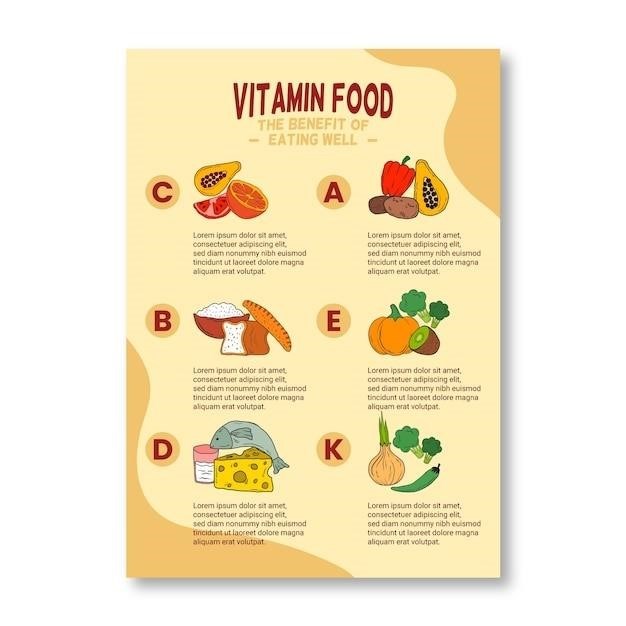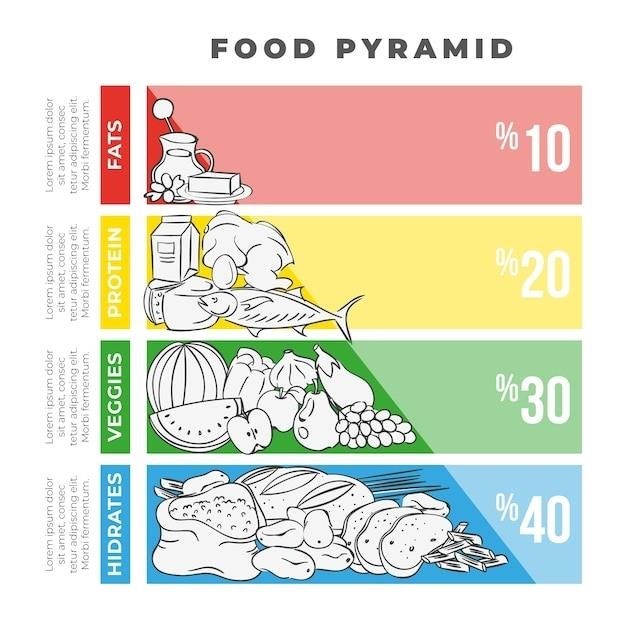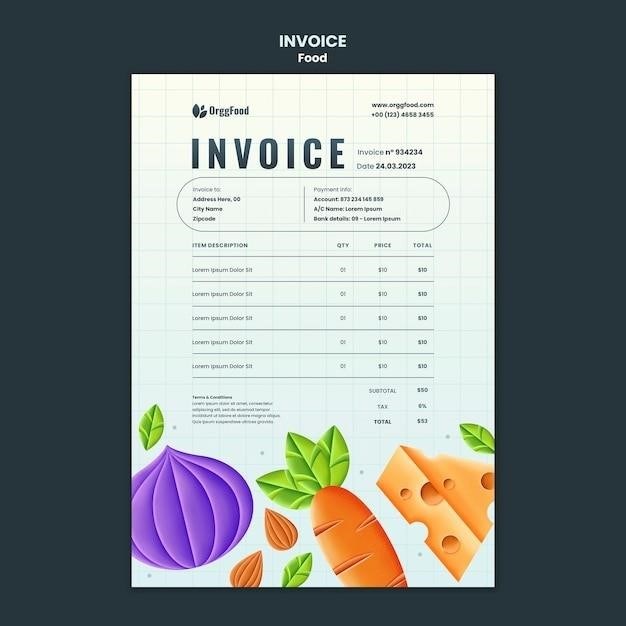Understanding Refined Carbohydrates
Refined carbohydrates are processed foods stripped of fiber, vital nutrients, and healthy fats․ These processed foods, often high in simple sugars, contribute to various health issues․ Understanding refined carbs is crucial for making informed dietary choices․ Learn to identify and reduce their consumption for better health outcomes․ This knowledge empowers healthier eating habits․
What are Refined Carbs?
Refined carbohydrates are carbohydrates that have undergone processing to remove the bran and germ, leaving primarily the endosperm․ This process significantly reduces the fiber, vitamins, and minerals naturally present in whole grains․ The result is a carbohydrate source that is quickly digested, leading to rapid spikes in blood sugar levels․ Common examples include white bread, white rice, pastries, and many processed foods․ While providing energy, refined carbs lack the nutritional benefits of their whole-grain counterparts, potentially contributing to health problems when consumed excessively․ Understanding this distinction is key to making informed choices about your carbohydrate intake and overall well-being․ The absence of fiber also means less satiety, potentially leading to overconsumption and weight gain․
Examples of Refined Carbs
White bread, white rice, and most pastries are prime examples of refined carbohydrates․ Many breakfast cereals, particularly those heavily processed and sugary, fall into this category․ Sugary drinks like soda and juice, while not grains, are also significant sources of refined carbs․ Processed snacks such as chips, crackers, and cookies often contain refined grains and added sugars․ Pasta made from refined white flour, as opposed to whole wheat pasta, is another common culprit․ Many processed foods, including canned goods and frozen meals, contain refined carbohydrates as ingredients․ Instant mashed potatoes and some types of margarine also contain refined carbohydrates․ Being aware of these common sources is crucial for reducing refined carb consumption and improving overall diet quality․
Health Risks of Refined Carbs
Excessive consumption of refined carbohydrates is strongly linked to weight gain and obesity due to their rapid digestion and conversion into blood sugar․ This rapid rise in blood sugar can lead to insulin resistance, a precursor to type 2 diabetes․ The lack of fiber in refined carbs contributes to digestive problems like constipation and can negatively impact gut health․ Studies have shown a correlation between high refined carb intake and increased risk of heart disease, due to potential increases in LDL cholesterol levels․ Furthermore, diets high in refined carbs can lead to energy crashes and mood swings, impacting overall well-being․ These processed foods often lack essential nutrients, contributing to nutritional deficiencies․ Therefore, moderating refined carbohydrate consumption is vital for maintaining long-term health and well-being․

Refined vs․ Whole Grains
Whole grains retain their bran, germ, and endosperm, offering superior nutritional value compared to refined grains, which are stripped of these components, resulting in reduced fiber and nutrient content․
Nutritional Differences
Refined grains undergo processing that removes the bran and germ, significantly reducing their nutritional value․ Whole grains, in contrast, retain these parts, providing a wealth of fiber, vitamins, minerals, and antioxidants․ This difference is substantial; whole grains are packed with nutrients crucial for digestive health, energy levels, and overall well-being, while refined grains are often left with primarily carbohydrates, lacking the essential micronutrients․ The fiber content in whole grains aids digestion, promoting regularity and preventing constipation․ Vitamins like B vitamins and minerals such as iron and magnesium are abundant in whole grains but significantly diminished in their refined counterparts․ Antioxidants, potent disease-fighting compounds, are also lost during the refining process․ Choosing whole grains over refined grains is a simple yet impactful way to boost your nutrient intake and support your health․
Identifying Whole Grains
Discerning whole grains from refined grains requires careful examination of food labels․ Look for products where the first ingredient lists a whole grain, such as “whole wheat,” “brown rice,” or “whole oats․” The presence of the term “whole grain” is a strong indicator, but always check the ingredients list․ Avoid products with ingredients like “enriched flour” or “degermed cornmeal,” as these indicate the removal of beneficial parts․ If the label displays a “50% whole grain” stamp, at least half of the grain components are whole grains․ Pay attention to the order of ingredients; those listed first are present in the highest amounts․ Familiarize yourself with the various names used for whole grains; for instance, “whole wheat flour” and “whole grain oats” represent unrefined alternatives․ By diligently checking labels and becoming familiar with whole grain terminology, you can make informed choices that maximize the nutritional benefits of your grain consumption․ Remember, reading labels carefully is key to making healthy selections․
Making Healthy Swaps
Transitioning from refined to whole grains may initially present challenges in terms of taste and texture․ However, gradual substitution can ease this adjustment․ Begin by replacing one refined carb source at a time․ For instance, swap white bread for whole-wheat bread, white rice for brown rice, or regular pasta for whole-wheat pasta․ Experiment with different whole-grain varieties to discover your preferences․ Explore diverse options like quinoa, farro, or barley to add variety and nutritional depth to your meals․ Don’t be afraid to try new recipes featuring these healthier grains․ The internet and cookbooks offer a wealth of inspiration․ Remember, consistency is key․ Small, sustainable changes are more effective than drastic overhauls․ As your palate adapts, you’ll likely find that the nutritional benefits of whole grains outweigh any initial adjustments needed․
Reducing Refined Carb Intake
Minimize refined carbohydrate consumption for improved health․ Prioritize whole grains, fruits, and vegetables․ Check food labels diligently․ Create balanced meals; Make gradual, sustainable changes for lasting results․
Strategies for Reducing Consumption
Gradually decrease refined carbohydrate intake to avoid drastic dietary shifts․ Start by swapping refined grains for whole grains․ Choose whole-wheat bread over white bread, brown rice over white rice, and whole-wheat pasta over regular pasta․ Incorporate more fruits and vegetables into your meals and snacks to increase fiber and nutrient intake․ These naturally displace less nutritious choices․ Be mindful of portion sizes; even healthy carbs should be consumed in moderation․ Read food labels carefully to identify hidden sugars and refined grains in processed foods․ Prepare more meals at home to better control ingredients and portion sizes․ Experiment with alternative sweeteners such as stevia or honey in moderation instead of refined sugars․ Don’t eliminate all refined carbs at once, as this could lead to cravings and setbacks․ Focus on making gradual, sustainable changes․ If you struggle with reducing refined carbs, consider seeking guidance from a registered dietitian or nutritionist for personalized advice and support․
Reading Food Labels
Carefully examine food labels to identify refined carbohydrates․ Look for terms like “enriched flour,” “degermed cornmeal,” and “white bread” which indicate refined grains․ Check the ingredient list; the first few ingredients often represent the largest amounts․ If refined grains appear high on the list, the product likely contains significant amounts of refined carbs․ Pay close attention to the “total carbohydrate” and “added sugars” sections․ High added sugar content often correlates with a high concentration of refined carbohydrates․ Understand that “whole grain” does not automatically mean healthy; look for the specific whole grain type (e․g․, whole wheat, whole oats) to ensure it’s genuinely unrefined․ Compare similar products to find lower-refined-carb options․ Be aware that some manufacturers cleverly mask refined carbs with deceptive labeling․ Prioritize foods with a short, easily recognizable ingredient list, favoring whole, unprocessed foods․ Don’t be misled by misleading marketing terms; read the nutritional information for a complete picture․
Creating a Balanced Diet
A balanced diet minimizes refined carbohydrate intake while emphasizing whole, unprocessed foods․ Prioritize nutrient-dense options like fruits, vegetables, and lean proteins․ Incorporate whole grains such as brown rice, quinoa, and oats, which provide sustained energy and fiber․ Choose healthy fats from sources like avocados, nuts, and olive oil․ These fats contribute to satiety and overall well-being․ Limit processed foods, sugary drinks, and refined grains, as these often lack essential nutrients and contribute to weight gain and other health problems․ Plan your meals and snacks strategically to ensure adequate intake of all essential nutrients․ Consider consulting a registered dietitian or nutritionist for personalized dietary guidance․ They can help create a tailored plan based on your individual needs and preferences․ Remember that maintaining a balanced diet is a journey, not a destination, and requires ongoing effort and mindful choices․

Resources and Further Information
Reliable sources offer comprehensive dietary guidance․ Consult registered dietitians or nutritionists for personalized advice․ Utilize reputable online resources and government guidelines for accurate information on nutrition and healthy eating practices․
Reliable Sources of Information
Seeking trustworthy information on refined carbohydrates is crucial for making informed dietary choices․ Government health websites, such as those maintained by the USDA or NHS, provide evidence-based guidelines and educational resources․ Reputable health organizations, including the American Heart Association and the Academy of Nutrition and Dietetics, offer detailed information on nutrition and healthy eating․ Look for websites and publications that cite scientific studies and avoid those promoting fad diets or unproven claims․ Peer-reviewed journals and books written by registered dietitians or other qualified nutrition professionals are excellent sources for in-depth information․ Be cautious of information found on social media or unreliable websites․ Always cross-reference information from multiple credible sources before making any significant dietary changes․
Dietary Guidelines
Many national and international dietary guidelines recommend limiting refined carbohydrate intake․ These guidelines often emphasize the importance of consuming whole grains over refined grains, due to the significant nutritional differences․ Recommendations often suggest focusing on nutrient-dense foods, including fruits, vegetables, and lean proteins, while limiting added sugars and processed foods high in refined carbohydrates․ Specific recommendations for carbohydrate intake can vary depending on factors like age, activity level, and overall health status․ Consult your doctor or a registered dietitian for personalized advice tailored to your individual needs․ Dietary guidelines are regularly updated based on the latest scientific research, so it is important to refer to the most current versions for the most accurate and up-to-date information․
Professional Advice
Seeking professional guidance from a registered dietitian or other qualified healthcare provider is highly recommended for personalized dietary advice․ These professionals can assess your individual nutritional needs and health goals, providing tailored recommendations for managing refined carbohydrate intake․ They can help you create a balanced meal plan that aligns with your health status and preferences, offering practical strategies for making sustainable dietary changes․ A registered dietitian can provide support and guidance throughout your journey, addressing any challenges and ensuring your dietary choices support your overall well-being․ Professional advice ensures a safe and effective approach to modifying your diet and achieving your health objectives․
